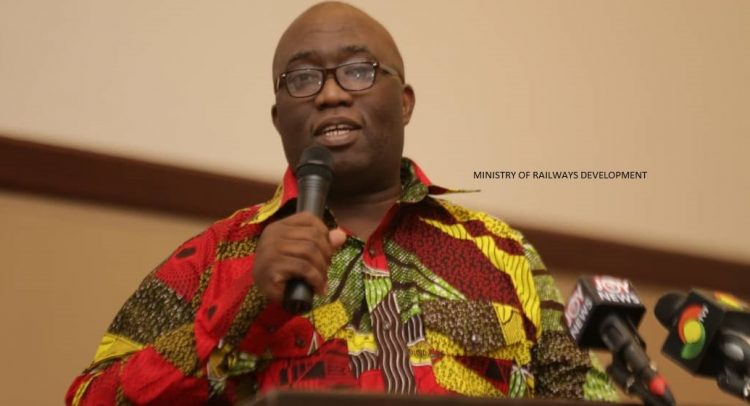Joe Ghartey
The Ghana School of Railways and Infrastructure Development has finally started operations.
The School of Railways and Infrastructure Development is part of the University of Mines and Technology, Tarkwa, and programmes being offered by the school are engineering courses.
On January 15, 2021, the first batch of students reported on campus and are currently undergoing orientation for a four-year course.
In the 2021 academic year, the department is expected to admit some 300 students and plans to admit about 5,000 students in the next four years.
The Minister of Railways Development, Joe Ghartey, spearheaded the establishment of the school and with the massive investments made in the railway sector by the Akufo-Addo-led NPP Government, the development of human resource capacity for the sector is expected to receive a major boost.
The sector minister, Mr. Ghartey, signed a Memorandum of Understanding (MoU) with the University of Mines and Technology (UMaT), Tarkwa, to develop the Railways Training School into an accredited institution of higher learning for the award of certificates and diplomas.
The collaboration was also aimed at transforming the Railways Training School into a degree awarding university.
The school is creating employment and bringing income to many people in Tarkwa, with residents renting their properties to students who have moved to the area to pursue courses in railway development.
The school has been established to provide quality and practical training in rail transport and logistics, responsive to a vibrant market environment through research and technology to adopt the changing world economy with innovative and creative mindset to grow the rail business.
It also seeks to become a world-class railway institution dedicated to professional excellence in rail transport management.
The whole idea of establishing a railway institute for Ghana dates back to 1945 when the Ghana Armed Forces handed over its barracks in Takoradi to the then Ghana Railways and Ports Authority for use by the Railway Central Training Institute for the training of its staff.
The construction of the Railway Central Training Institute in Sekondi began in 1984 and was funded with a World Bank loan. The project was initially started by Messrs Commazzi Contractors Limited, but was later completed by the State Construction Corporation and Frednaro Construction Limited with Architectural and Engineering Services Corporation as the constituency firm.
By Melvin Tarlue


